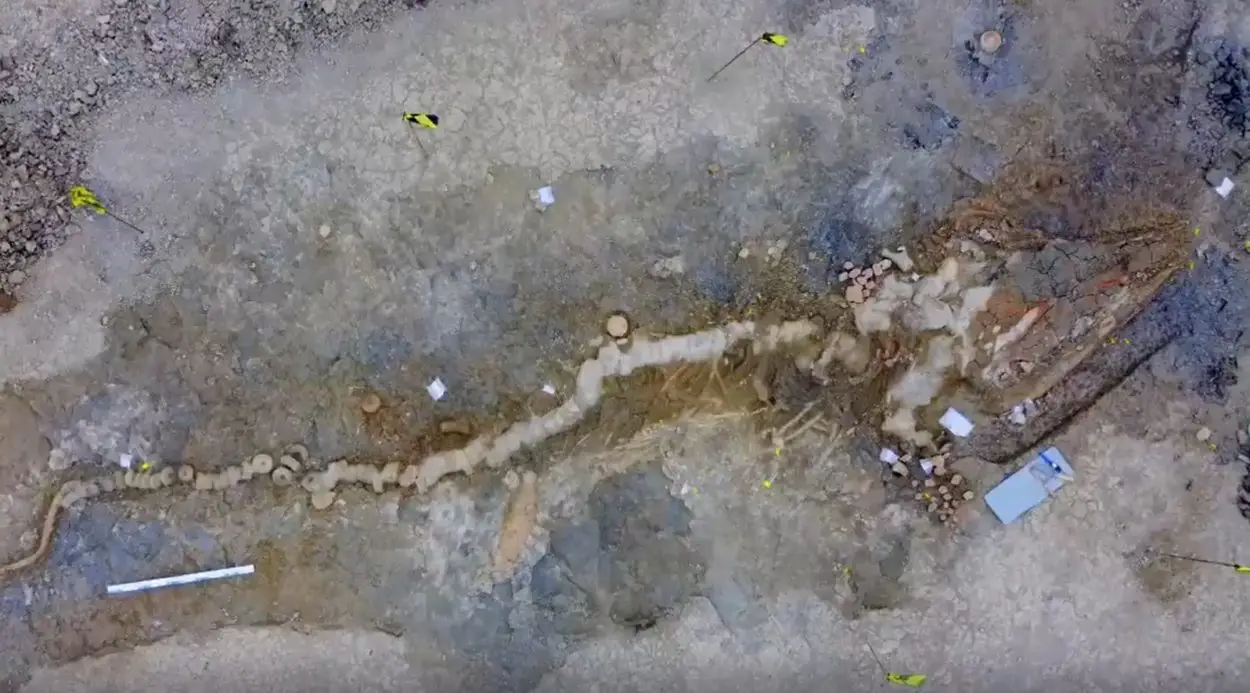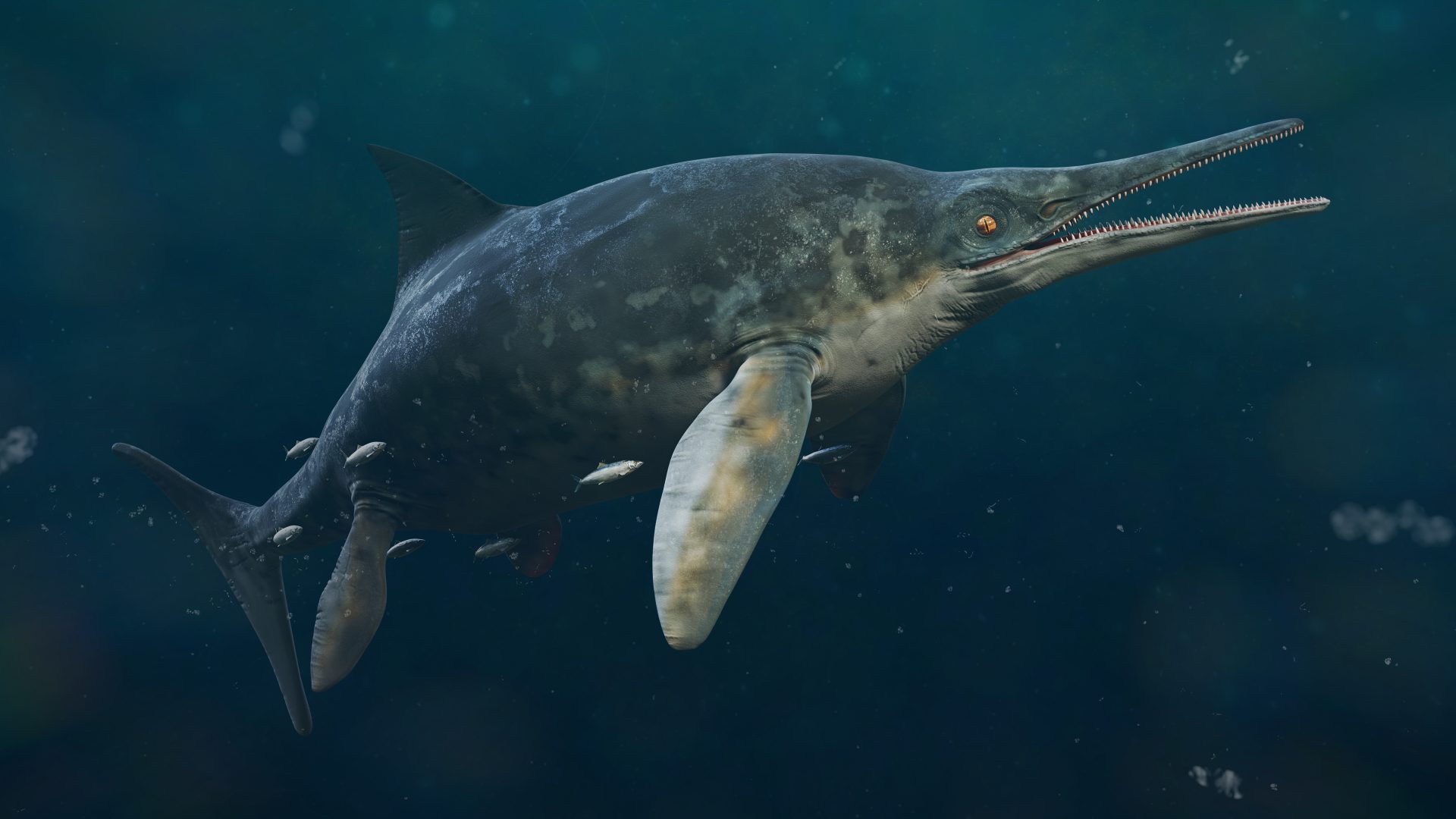The fossil of a giant ichthyosaur from around 180 million years ago has been discovered at the Rutland Water reservoir in the East Midlands of England.
The specimen was discovered by the Rutland Wildlife Trust during works to drain a lagoon island in the reservoir for landscaping. Rutland’s bedrock is entirely Jurassic in age and spans the period between about 195 and 160 million years ago, with the oldest rocks in the southwest and the youngest in the west.
Measuring around ten metres in length, the fossil is the largest and most complete ichthyosaur ever found in the UK. Previous smaller and incomplete ichthyosaur were found during the reservoirs construction in the 1970’s, but the latest discovery is the first complete specimen.

Ichthyosaurs thrived during much of the Mesozoic era, first appearing around 250 million years ago, until their extinction 90 million years ago in the Late Cretaceous period.
After reporting the fossil to the local council and Dr Mark Evans of the British Antarctic Survey, a team of palaeontologists was assembled from around the UK, and the fragile remains of the huge skeleton were carefully excavated in August and September of 2021.
Dr Evans said: ““It was only after our exploratory dig that we realised that it was practically complete to the tip of the tail. It’s a highly significant discovery both nationally and internationally but also of huge importance to the people of Rutland and the surrounding area.”
The researchers hope that the completeness of the fossil will help in further identifying other less complete ichthyosaur specimens found in museums archives across the UK.
Header Image Credit : Shutterstock





